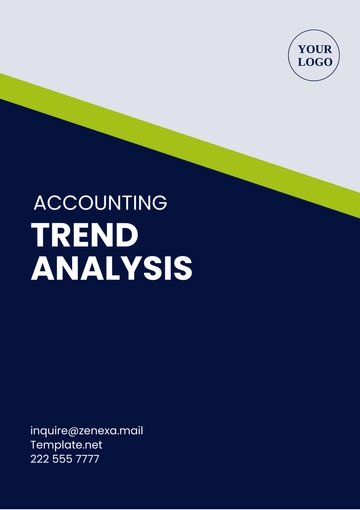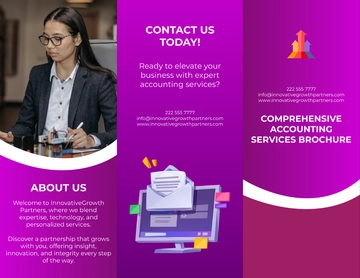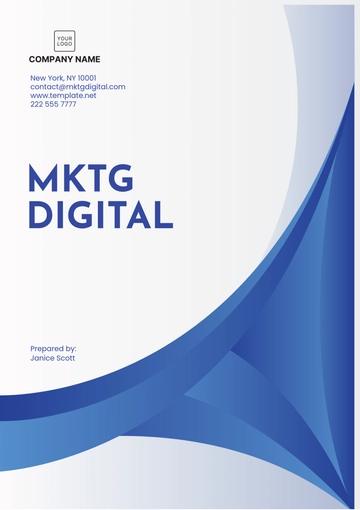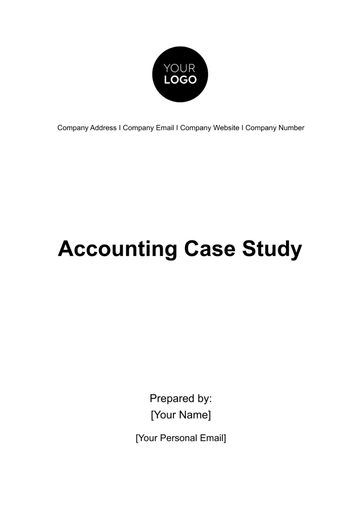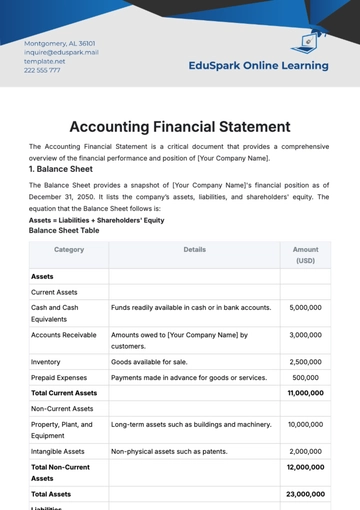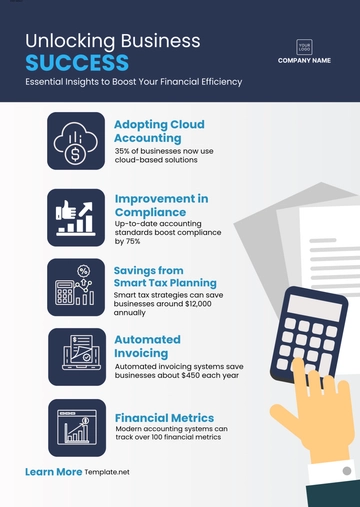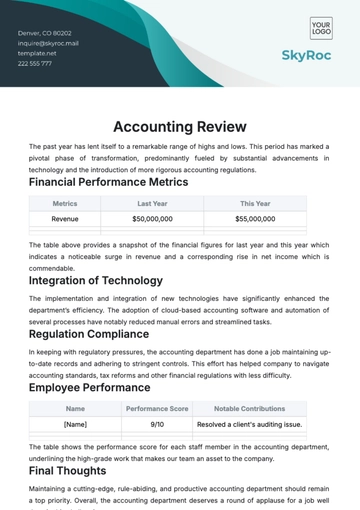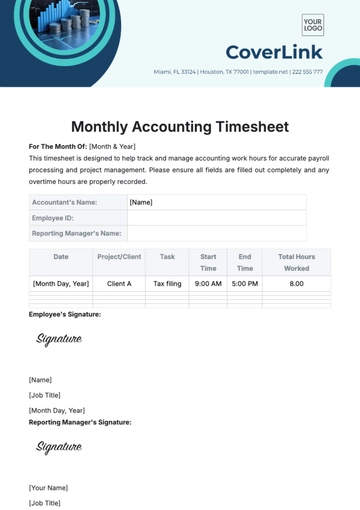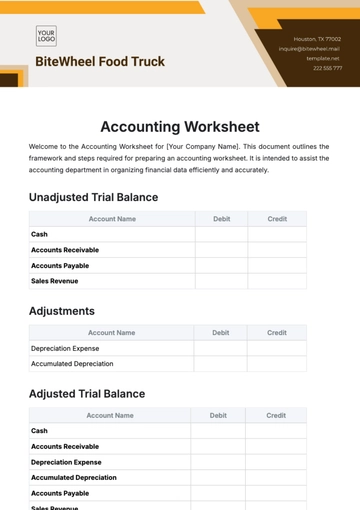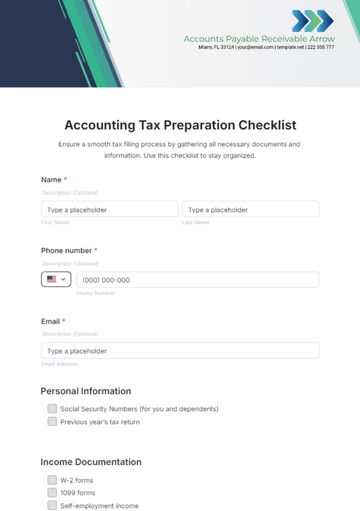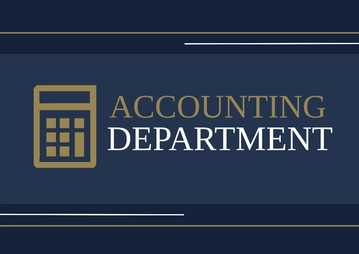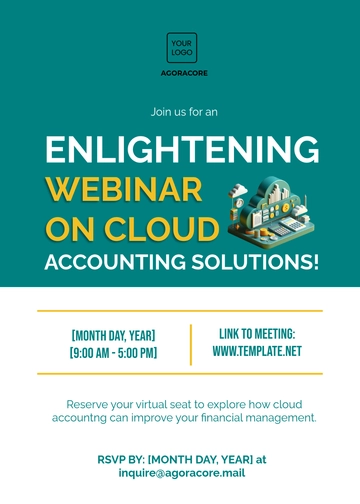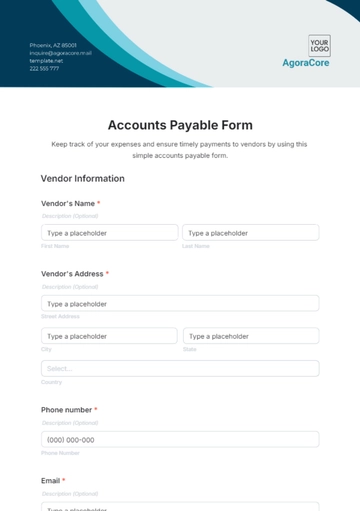Free Accounts Sustainability Study
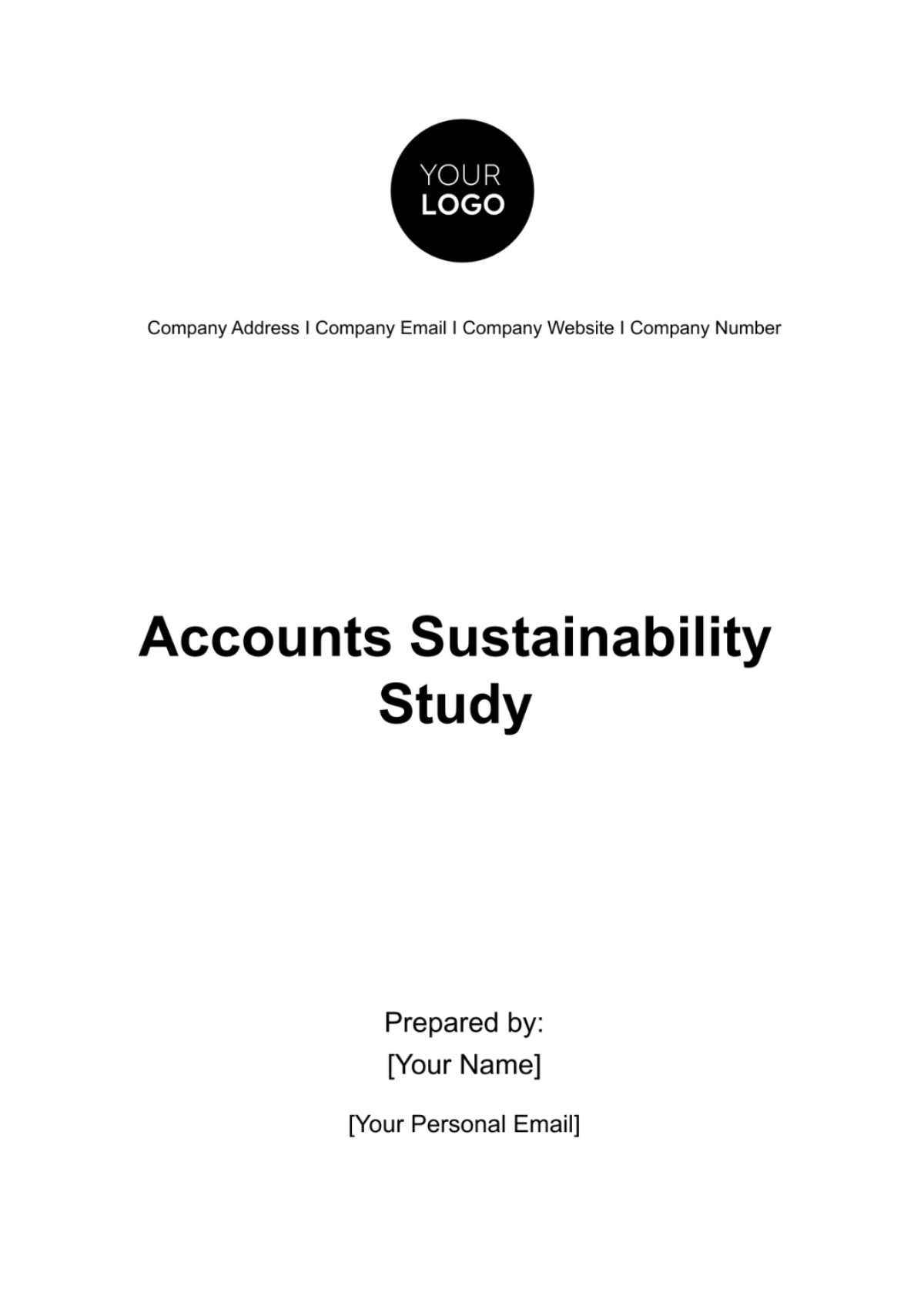
This study is authored by [Your Name], it investigates the efficiency, effectiveness and the sustainability of the accounting methods and procedures within [Your Company Name].
Table of Contents
1. Executive Summary
2. Introduction and Background
A. Current Financial Practices and Sustainable Integration
B. Commitment to Long-term Success and Environmental Stewardship
3. Sustainability Goals and Objectives
A. Objective 1: Reduction of Carbon Footprint
B. Objective 2: Ethical Investment and Transparent Reporting
C. Objective 3: Sustainable Vendor and Supply Chain Management
D. Objective 4: Employee Training and Engagement in Sustainable Practices
E. Objective 5: Continuous Improvement and Sustainability Reporting
4. Methodology
A. Quantitative Data Analysis
B. Qualitative Assessments through Surveys and Interviews
C. Benchmarking Against Industry Best Practices
5. Analysis of Current Financial Practices
A. Ethical Investment Performance
B. Environmental Impact of Accounting Operations
6. Recommendations for Sustainable Practices
A. Transition to a Paperless Accounting System
B. Investing in Energy-Efficient Technology
C. Regular Sustainability Audits
7. Implementation Plan and Monitoring
A. Year One: Transition to Paperless Operations and Energy Efficiency
B. Year Two and Three: Sustainability Audits and Integrating Sustainable Decision-Making
8. Conclusion
1. Executive Summary
The Accounts Sustainability Study for [Your Company Name] meticulously examines the company's financial operations with a focus on embedding sustainable practices. Our principal aims involve diminishing the ecological footprint of our accounting procedures, fostering principled financial decisions, and amplifying clarity in financial disclosures.
A thorough analysis revealed substantial prospects for enhancements, particularly in areas like energy consumption, efficient use of resources, and engagement with various stakeholders. We have identified and outlined strategic recommendations that are pivotal for aligning the financial activities of [Your Company Name] with its overarching sustainability commitments.
These recommendations are not merely a response to the growing environmental concerns but also a strategic move towards operational efficiency and long-term financial stability. By adopting these practices, [Your Company Name] is set to become a frontrunner in sustainable financial operations, demonstrating a model that other businesses can emulate for achieving economic success without compromising environmental and social responsibilities.
2. Introduction and Background
In today's evolving business landscape, [Your Company Name] acknowledges the increasing significance of integrating sustainability into every facet of business operations, especially in accounting and finance. This shift is driven by a global recognition of environmental challenges and the growing demand for corporate accountability. Our study meticulously evaluates [Your Company Name]'s financial practices, scrutinizing their alignment with these evolving sustainable norms. As a leader in innovation, [Your Company Name] aims to exemplify how contemporary businesses can thrive while upholding ecological and social responsibilities.
A. Current Financial Practices and Sustainable Integration
At [Your Company Name], our existing financial practices encompass traditional methods alongside emerging sustainable strategies. This study serves as a critical analysis tool, enabling us to assess the effectiveness of our current methods and identify opportunities for deeper integration of sustainability principles. We prioritize assessing how our financial decisions impact the environment and society, understanding that this introspection is crucial for aligning our practices with our core values of responsibility and stewardship.
B. Commitment to Long-term Success and Environmental Stewardship
Our dedication to sustainable financial practices is not just a response to external pressures but a strategic choice aligned with [Your Company Name]'s vision for long-term success. By committing to responsible accounting, we are not only safeguarding our financial viability but also contributing to environmental conservation. This approach solidifies our reputation as a forward-thinking company that values not just profitability but also the health of our planet and the well-being of our communities. Through this study, [Your Company Name] demonstrates its unwavering commitment to being a custodian of sustainable growth in the business world.
3. Sustainability Goals and Objectives
In this crucial section of the Accounts Sustainability Study, [Your Company Name] articulates a series of well-defined sustainability goals and objectives for its accounting operations. These objectives are crafted to align with our overarching commitment to sustainable development, embodying an analytical, professional, and informative approach.
A. Objective 1: Reduction of Carbon Footprint
Our goal to reduce the carbon footprint of our financial operations by 20% within three years is a testament to our dedication to environmental stewardship. This will be achieved through implementing energy-efficient technologies, optimizing digitalization to reduce paper use, and adopting renewable energy sources in our accounting processes.
B. Objective 2: Ethical Investment and Transparent Reporting
We are committed to integrating ethical investment strategies that align with Environmental, Social, and Governance (ESG) criteria, ensuring that our financial resources foster positive societal and environmental outcomes. Concurrently, we aim to achieve 100% transparency in financial reporting related to environmental impacts, thereby enhancing stakeholder trust and showcasing our commitment to responsible financial practices.
C. Objective 3: Sustainable Vendor and Supply Chain Management
[Your Company Name] aims to incorporate sustainability criteria into our vendor and supply chain management. This involves evaluating and selecting partners and suppliers based on their environmental performance and sustainability practices, ensuring that our entire supply chain reflects our sustainability ethos.
D. Objective 4: Employee Training and Engagement in Sustainable Practices
We recognize the importance of empowering our employees with knowledge and skills in sustainable accounting practices. To this end, [Your Company Name] will implement comprehensive training programs and engage employees in sustainability initiatives, fostering a workplace culture that values and actively contributes to our sustainability goals.
E. Objective 5: Continuous Improvement and Sustainability Reporting
Our final objective is to establish a framework for continuous improvement in our sustainability efforts. This involves regularly reviewing and updating our sustainability strategies and practices, ensuring they remain effective and relevant. Additionally, we will produce annual sustainability reports to communicate our progress, challenges, and future plans in a transparent and accountable manner.
Each of these objectives plays a vital role in steering [Your Company Name] towards a more sustainable and responsible future, underscoring our commitment to not just financial success but also to making a positive impact on society and the environment.
4. Methodology
In this section of the Accounts Sustainability Study for [Your Company Name], we elaborate on the methodology employed to evaluate and enhance the sustainability of our financial operations. Utilizing a mixed-methods approach, this comprehensive study integrates quantitative data analysis with qualitative assessments. This multifaceted methodology allows us to thoroughly review, assess, and refine our financial practices, ensuring they align with our sustainability goals.
A. Quantitative Data Analysis
We engaged in extensive quantitative data analysis to measure the environmental impact of our current financial operations. This involved collecting and analyzing data related to energy consumption, resource usage, and waste generation within our accounting department. By quantifying these aspects, we established a baseline against which we can measure future improvements. This data-driven approach allows for objective assessment and aids in identifying specific areas where sustainable practices can be most effectively implemented.
B. Qualitative Assessments through Surveys and Interviews
To complement our data analysis, qualitative assessments were conducted in the form of employee and stakeholder surveys, as well as interviews. These assessments provided invaluable insights into the perceptions and attitudes towards sustainability within our organization. They also helped in identifying potential challenges and opportunities for improvement that may not be evident through quantitative analysis alone. This feedback is crucial for developing a holistic sustainability strategy that is not only effective but also embraced by the entire organization.
C. Benchmarking Against Industry Best Practices
Benchmarking against industry best practices forms a key part of our methodology. By comparing our practices with those of leaders in sustainability, we gain a clear understanding of where we stand in the industry and what improvements are necessary. This benchmarking process involves reviewing case studies, sustainability reports, and industry standards. It serves as a guide for [Your Company Name] to aspire to and surpass, ensuring that our sustainability initiatives are not only current but also forward-thinking and innovative.
Through this comprehensive methodology, [Your Company Name] ensures a thorough and accurate assessment of our current financial operations, setting a solid foundation for the successful implementation of sustainable practices. This approach underscores our commitment to not just adopting sustainability as a concept but embedding it deeply into our operational ethos.
5. Analysis of Current Financial Practices
We present a detailed analysis of the current financial practices of [Your Company Name]. Our investigation focuses on two main areas: ethical investing and the environmental impact of our accounting operations. The findings reveal a commendable performance in ethical investing but highlight significant opportunities for improvement in environmental sustainability, particularly concerning paper-based processes and energy usage in IT systems.
A. Ethical Investment Performance
Investment Criteria | Current Performance | Industry Average | Goal for [Your Company Name] |
|---|---|---|---|
ESG Integration | 85% | 75% | 95% |
Social Responsibility | 80% | 70% | 90% |
Governance Standards | 75% | 65% | 85% |
Note: Percentages indicate the proportion of investments meeting the specified criteria.
In ethical investment practices, [Your Company Name] demonstrates a strong performance, with a higher integration of Environmental, Social, and Governance (ESG) criteria compared to the industry average. This is a testament to our commitment to responsible investment practices, aligning our financial growth with positive societal and environmental impacts.
B. Environmental Impact of Accounting Operations
Aspect | Current Status | Goal for [Your Company Name] | Reduction Target |
|---|---|---|---|
Paper Usage (tonnes/yr) | 50 | 30 | 40% |
Energy Usage (MWh/yr) | 200 | 150 | 25% |
Carbon Footprint (tCO2e/yr) | 100 | 70 | 30% |
Note: tCO2e refers to tonnes of carbon dioxide equivalent.
The environmental analysis of our accounting operations reveals significant scope for improvement. The current usage of paper and energy in IT systems considerably impacts our carbon footprint. Implementing sustainable practices in these areas, such as transitioning to paperless processes and using energy-efficient systems, presents an opportunity to substantially reduce our environmental impact.
Through this analytical examination, [Your Company Name] not only identifies areas for enhancement but also sets quantifiable targets to guide our journey towards sustainability. The comprehensive data presented here will serve as a benchmark for monitoring our progress and ensuring that we remain committed to our sustainability goals.
6. Recommendations for Sustainable Practices
In this section, we present detailed recommendations for [Your Company Name] to enhance the sustainability of its financial operations. These recommendations are designed to address the key areas identified in our analysis, focusing on reducing environmental impact and promoting continuous improvement. We provide a structured approach, with each recommendation supported by actionable strategies and anticipated outcomes.
A. Transition to a Paperless Accounting System
Strategy | Implementation Plan | Expected Outcome |
|---|---|---|
Implement digital accounting software | Q2 [Year] - Q4 [Year] | 40% reduction in paper usage in the first year |
Online invoicing and e-receipts | Q1 [Year]- Q3 [Year] | 50% decrease in paper-based invoices and receipts |
Employee training on digital tools | Q1 [Year] | Increase in employee efficiency and digital literacy |
Note: The timelines are indicative and subject to adjustment.
Transitioning to a paperless system involves the adoption of digital accounting software, online invoicing, and employee training. This move is expected to significantly cut down on paper usage, reducing our environmental footprint and operational costs. It also promotes a more efficient and streamlined accounting process.
B. Investing in Energy-Efficient Technology
Technology | Implementation Plan | Expected Outcome |
|---|---|---|
Energy-efficient servers and computers | Q2 [Year]- Q4 [Year] | 25% reduction in energy consumption |
Smart climate control systems | Q3 [Year] - Q1 [Year] | 15% decrease in HVAC energy usage |
LED lighting in accounting department | Q2 [Year] | 20% reduction in lighting energy consumption |
Note: The expected outcomes are based on industry averages and may vary.
Investing in energy-efficient technology is crucial for reducing our carbon footprint. By upgrading to energy-efficient servers, implementing smart climate control systems, and switching to LED lighting, we can achieve substantial energy savings and contribute to environmental conservation.
C. Regular Sustainability Audits
Audit Focus | Frequency | Expected Benefit |
|---|---|---|
Environmental impact assessment | Biannually | Continuous monitoring and improvement of sustainability practices |
Compliance with sustainability standards | Annually | Ensuring adherence to environmental regulations and standards |
Stakeholder feedback integration | Annually | Aligning practices with stakeholder expectations and industry trends |
Note: Audits will be conducted by an independent third party.
Conducting regular sustainability audits is essential for maintaining and improving our sustainable practices. These audits will assess the environmental impact of our financial operations, ensure compliance with sustainability standards, and integrate stakeholder feedback. This proactive approach enables continuous monitoring and improvement, ensuring that [Your Company Name] remains at the forefront of sustainable financial operations.
7. Implementation Plan and Monitoring
[Your Company Name] outlines a structured and phased implementation plan spanning three years. This plan is designed to systematically integrate sustainable practices into our financial operations. We will monitor progress through defined Key Performance Indicators (KPIs), ensuring that each step is effectively contributing to our overarching sustainability goals.
A. Year One: Transition to Paperless Operations and Energy Efficiency
The first year is pivotal, marking the beginning of our transition to paperless accounting operations. This involves implementing digital accounting systems, training employees on new software, and phasing out paper-based processes. Simultaneously, we will invest in energy-efficient technologies, upgrading our IT infrastructure and office environment. These steps are expected to result in a significant reduction in paper usage and energy consumption. KPIs for this phase include the percentage reduction in paper use and energy savings achieved.
B. Year Two and Three: Sustainability Audits and Integrating Sustainable Decision-Making
In the second year, we will conduct our inaugural sustainability audit. This audit will evaluate the effectiveness of the changes implemented in the first year and identify areas for further improvement. In the third year, the focus shifts to fully integrating sustainability into our financial decision-making processes. This includes revising investment strategies to align with ESG criteria and enhancing transparency in financial reporting. KPIs for these phases include audit findings, compliance rates with sustainability standards, and improvements in ESG investment metrics.
8. Conclusion
This Accounts Sustainability Study for [Your Company Name] culminates in a strategic blueprint, guiding our transition towards more sustainable financial operations. Throughout this analysis, we have employed a professional, analytical, and objective approach to scrutinize current practices, set realistic goals, and devise actionable recommendations. The study's comprehensive nature ensures that our shift towards sustainability is grounded in empirical data and best industry practices, rather than conjecture.
Our investigation has highlighted significant areas for improvement, particularly in reducing environmental impact and enhancing ethical decision-making within our financial operations. The transition to paperless systems, adoption of energy-efficient technologies, and regular sustainability audits are not merely operational changes but strategic moves towards long-term sustainability and corporate responsibility. These steps, while challenging, are crucial for minimizing our ecological footprint and aligning our financial practices with global sustainability standards.
The phased implementation plan, complete with measurable KPIs, provides a structured pathway to achieving these goals. However, it is imperative to acknowledge that this journey towards sustainability is iterative and adaptive. It demands ongoing commitment, evaluation, and adjustment to stay abreast of technological advancements and evolving sustainability metrics.
Therefore, the Accounts Sustainability Study sets forth a pragmatic and forward-looking agenda for [Your Company Name]. It establishes a framework for integrating sustainability into the core of our financial operations, thereby reinforcing our commitment to responsible business practices. As we embark on this path, the study will serve as a living document, evolving with our progress and the changing landscape of corporate sustainability.
- 100% Customizable, free editor
- Access 1 Million+ Templates, photo’s & graphics
- Download or share as a template
- Click and replace photos, graphics, text, backgrounds
- Resize, crop, AI write & more
- Access advanced editor
Revolutionize your accounting with Accounts Sustainability Study from Template.net. Our editable, customizable template presents financial data with visual flair. Tailored via the Ai Editor Tool, it enhances data accessibility. Seamless, dynamic, transform your reporting experience. Leverage Template.net's expertise, set a new sustainability standard in your accounting.

